We interrupt our timeline to bring you the sad news of the passing of a legend in vampire fiction. Anne Rice, author of
The Vampire Chronicles, has died aged 80 in a hospital in California from complications following a stroke. We now present our own little tribute to this remarkable woman.
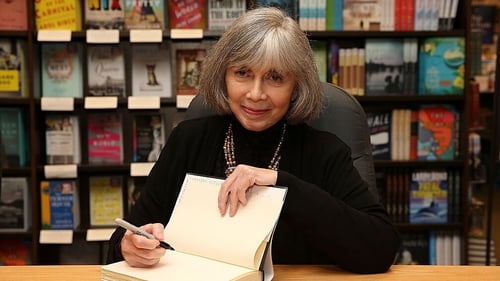 Queen of the Undead: A Tribute to Anne Rice (1941 - 2021)
Queen of the Undead: A Tribute to Anne Rice (1941 - 2021)
While it would not be fair or accurate to say Anne Rice created the genre unofficially known as vampire literature or vampire horror, she certainly was one of the first, if not the first to drag the well-worn tropes into the twentieth century, reviving the genre at a time when really all there was were novels about Bram Stoker’s most famous creation. Her first vampire novel - in fact, her first novel - was published in 1976, only a year after Stephen King’s horror masterwork
Salem’s Lot, but whereas King focussed on the evil, monstrous, terrifying aspect of his vampires and made them not in the least sympathetic, Rice took a different approach with her vampires. Indeed, in the very first book,
Interview with the Vampire, in which we are introduced to her star Lestat de Lioncourt, through the recollections of his protege, Louis de Pont du Lac, there’s an immediate effort by Rice to allow us to see the world through the vampire’s eyes, to realise he’s not only the monster Stoker, LeFanu and others have painted the undead as, and most importantly, he hates what he has become.
Up to now, what vampire writing there had been had mostly concentrated on presenting the vampire as a monster, something to be destroyed, and something that wanted to destroy us. Anne Rice, while never allowing us to lose sight of the fact that vampires are evil creatures, helps us understand there is more to them that lustful blood-drinking and hunting. She shows us a species, if you will, who adore art and music, love company, travel and literature, and who enjoy the finer things life has to offer, while yet at the heart of it loathing what they have become. Even Lestat, the “brat prince” of vampire literature, who revels in his debauchery and power, becomes, over the course of five novels, bored with immortality and finally reaches a revelation about his existence which even he cannot ignore.
Anne Rice was born Howard Allen Frances O’Brien on October 4 1941, to Irish Catholic parents in New Orleans, almost two months to the day before America was attacked by Japan and drawn into World War II. Her father in fact served in the navy, and did write one novel, while her mother - who had given her the unusual name of Howard because “she was a bit of a madwoman” according to Anne herself - was a badly-sinking alcoholic and would die before Anne was fifteen. Another source claims it was her father who gave Anne her name, but in 1947 she legally changed it to Anne O’Brien. After her mother passed in 1956, her father wasted no time replacing her, and also farming out his children to the local private school for girls, St. Joseph Academy, which she and her sister hated, and which may have influenced some of the claustrophobia of later novels such as
Queen of the Damned and Lestat’s incarceration at the end of
Memnoch the Devil.
A year after remarrying, her father moved the family to Texas, where Anne would meet her future husband, Stan Rice. After studying at the University of San Francisco and working at an insurance firm, Anne married Stan in 1961 and they moved back to San Francisco the next year. Though they lived in the heart of the Haight-Ashbury district and it was “the summer of love”, Anne did not get involved, her strict Catholic upbringing leaving her writing while outside “everyone was dropping acid and smoking grass. I was known as my own square”. Her refusal to get involved in the drug scene paid off (though she was emulating her mother, as both she and her husband were now alcoholics) and she graduated from San Francisco State with an M.A. in creative writing in 1970. Her first child, Michele, born in 1966 was diagnosed with leukemia and only lived six years, dying in 1972, surely the inspiration for Claudia, the frustrated vampire child in her first novel.
However, the uncompromising attitude of the Catholic Church, and its inherent hypocrisy so angered and affected Anne that she officially left the Church around this time, declaring herself an atheist. She would maintain this stance well into her fifties, and her, if you like, release from the bonds of Christianity was to characterise her novels and allow her to people them with creatures who mocked God, even hated God, also loved God but many of whom refused even to believe in one. It was only in
Memnoch the Devil, the final book in the original Lestat story, that she would approach the subject head-on by doing something no other writer to my knowledge has ever done, and have her character speak face-to-face with God himself. And the Devil.
When her second child, Christopher, was born in 1978, she and Stan made the decision to give up the booze, Anne afraid that her son would suffer the same life she had done, and determined this would not be the case. When she first wrote
Interview with the Vampire she says herself that she did not do much research, but based the idea on the horror movie
Dracula’s Daughter, still managing so far as I can see to be the first author to present vampires as sympathetic beings the reader could relate to. After many rejections the novel was finally picked up and Anne was on her way. Two more vampire novels followed (in between some risque adult writing under pseudonyms) as
The Vampire Chronicles began to grow and take shape. Eventually the series would run to ten novels, moving away from its central character to tell the stories of others, such as Marius, Pandora and Armand. She also diversified into other areas of horror, writing a trilogy about witches, a novel about a mummy and, later, religious novels based on the life of Christ.
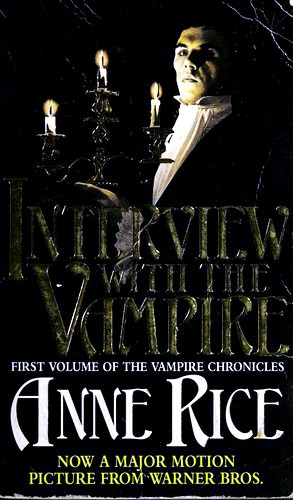
She wasn’t an overnight sensation though. Critical reaction to
Interview with the Vampire was mixed, and mostly negative, which caused her to question her choices and change tack for a few years. It was the sequel,
The Vampire Lestat (which, it has to be said, is a far superior book and my favourite of the original trilogy) that changed the critics’ minds, and by the time the conclusion of what was at that time a trilogy,
The Queen of the Damned was published, it made the New York Times Best Sellers list, going right to the top and staying on the list for a third of 1988. That year she and her family moved back to New Orleans, where they would remain and where most of her novels would be set. In 1998 she returned to the Catholic Church, though still disagreeing with many of its core stances, such as homosexuality and abortion rights, and this year too she had her first brush with death.
In truth, Anne Rice almost died twice, the first time being as above when she fell into a diabetic coma (unaware she even had diabetes) and then again in 2004 when she had a gastric bypass and almost died from an intestinal blockage. Whether this had any impact on her writing or not, she now chose to devote her remaining creative energies to praising God in her writing, though she didn’t by any means dismiss or disavow her supernatural works, those that had made her the famous figure she had become.
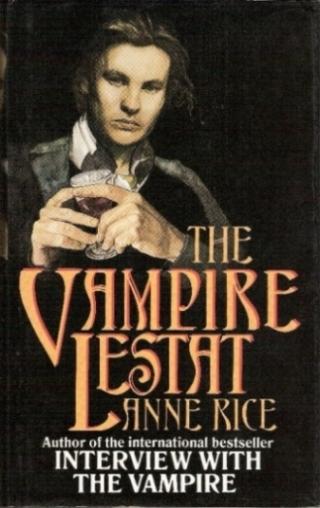 “I had experienced an old-fashioned, strict Roman Catholic childhood in the 1940s and 1950s ... we attended daily Mass and Communion in an enormous and magnificently decorated church.... Stained-glass windows, the Latin Mass, the detailed answers to complex questions on good and evil—these things were imprinted on my soul forever.... I left this church at age 18.... I wanted to know what was happening, why so many seemingly good people didn't believe in any organized religion yet cared passionately about their behavior and value of their lives.... I broke with the church.... I wrote many novels that without my being aware that they reflected my quest for meaning in a world without God.
“I had experienced an old-fashioned, strict Roman Catholic childhood in the 1940s and 1950s ... we attended daily Mass and Communion in an enormous and magnificently decorated church.... Stained-glass windows, the Latin Mass, the detailed answers to complex questions on good and evil—these things were imprinted on my soul forever.... I left this church at age 18.... I wanted to know what was happening, why so many seemingly good people didn't believe in any organized religion yet cared passionately about their behavior and value of their lives.... I broke with the church.... I wrote many novels that without my being aware that they reflected my quest for meaning in a world without God.
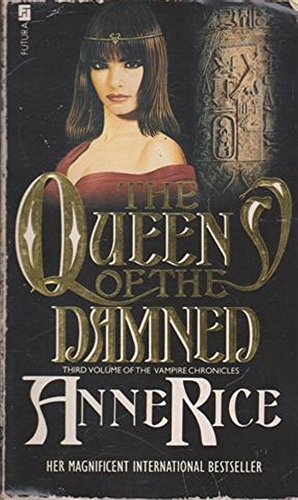 "In the moment of surrender, I let go of all the theological or social questions which had kept me from [God] for countless years. I simply let them go. There was the sense, profound and wordless, that if He knew everything I did not have to know everything, and that, in seeking to know everything, I'd been, all of my life, missing the entire point. No social paradox, no historic disaster, no hideous record of injustice or misery should keep me from Him. No question of Scriptural integrity, no torment over the fate of this or that atheist or gay friend, no worry for those condemned and ostracized by my church or any other church should stand between me and Him. The reason? It was magnificently simple: He knew how or why everything happened; He knew the disposition of every single soul. He wasn't going to let anything happen by accident! Nobody was going to go to Hell by mistake.”
"In the moment of surrender, I let go of all the theological or social questions which had kept me from [God] for countless years. I simply let them go. There was the sense, profound and wordless, that if He knew everything I did not have to know everything, and that, in seeking to know everything, I'd been, all of my life, missing the entire point. No social paradox, no historic disaster, no hideous record of injustice or misery should keep me from Him. No question of Scriptural integrity, no torment over the fate of this or that atheist or gay friend, no worry for those condemned and ostracized by my church or any other church should stand between me and Him. The reason? It was magnificently simple: He knew how or why everything happened; He knew the disposition of every single soul. He wasn't going to let anything happen by accident! Nobody was going to go to Hell by mistake.”
Without meaning to speak ill of the dead, especially someone I truly respected, I have to say this comes across as the next best thing to apologism for the Church and all the horror and evil it has presided over, even orchestrated down the centuries. It’s a blase, incredibly naive and in some ways insulting viewpoint to say “oh it’s all right cos God knows everything.” Bulls
hit.
But as I say, I don’t want to speak ill. I just wanted to say I completely and categorically disagree with and do not support her view expressed above.
After the death of her husband in 2002 Rice left New Orleans in 2005, with remarkable foresight or just pure dumb luck managing to miss Hurricane Katrina by months or weeks, and followed Christopher to California. In 2010 she had again had it with Christianity, as she explained the difference she saw between being a Christian and following Christ:
"Today I quit being a Christian.... I remain committed to Christ as always but not to being 'Christian' or to being part of Christianity. It's simply impossible for me to 'belong' to this quarrelsome, hostile, disputatious, and deservedly infamous group. For ten years, I've tried. I've failed. I'm an outsider. My conscience will allow nothing else."[83][84] Shortly thereafter, she clarified her statement: "My faith in Christ is central to my life. My conversion from a pessimistic atheist lost in a world I didn't understand, to an optimistic believer in a universe created and sustained by a loving God is crucial to me. But following Christ does not mean following His followers. Christ is infinitely more important than Christianity and always will be, no matter what Christianity is, has been, or might become.”
In contrast to her 1998 statement, it’s hard not to applaud and agree with this. Far too many so-called Christians don’t know what it is or what it is meant to be to be one, and have no intention of following any of the teachings of Jesus other than those that suit their own agenda. Makes me thank God I’m an atheist.
For me personally, Rice was a window into the world of horror, vampire horror and somewhat historical fiction, as I had not been a horror fan and had not seen or read
Salem’s Lot, and I think I may have read
Dracula beforehand, but I’m not sure. If I did, it was the only vampire novel I had read. Once I began
Interview with the Vampire I was hungry for more (sorry) but at the time I read it, though it was far from its original publication date (1986 I think) it was the only one available by her, so when I saw a sequel (technically a prequel I guess) bearing the name of the anti-hero of that first novel, I didn’t need any further prompting to grab it excitedly from the shelf at Eason Book Shops and shell out my hard-earned on it. Incidentally, for those interested, I found
Interview with the Vampire almost by accident, after having listened to the Sting song “Moon Over Bourbon Street” and reading that he had based it on the novel, which I then went out to find, so thanks, Sting: you did at least one good turn for me in your life.
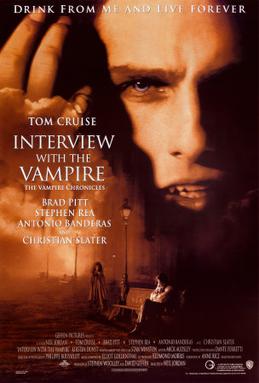
The film adaptations of her work had a mixed reception. Even the box-office draw of Tom Cruise in the title role couldn’t win the movie of
Interview with the Vampire an Academy Award, though it did very well in the box office and was a hit; it’s poorly remembered though and was quickly drowned out by movies such as the seventh in the
Star Trek franchise,
Generations and the truly awful
The Santa Clause as Christmas approached. It did win two BAFTAs (British Academy of Film and Television Awards) and Kirsten Dunst in her first role did well out of it, as did Brad Pitt and Antonio Banderas, but few people will cite it now who are not fans. Personally I thought Cruise did a very good job, considering that Rice had slated him as “about as much my Lestat as Edward G. Robinson!” It might, though, be telling that the film’s lack of enduring appeal may have prevented Cruise from reprising the role in
The Queen of the Damned, which fared much worse.
After much opposition by Anne the plan was to merge the two novels in one, which was crazy given how much ground there is to cover in one of them, never mind two. The central theme of the twins was dropped, again a ridiculous decision, and basically the movie was a mess. It barely made back its budget, making a paltry ten million as compared to the first one which almost quadrupled its initial outlay.
Queen of the Damned ironically lived up to its name, receiving almost universally negative reviews, triggering a poor 17% rating on Rotten Tomatoes and resulting in Rice advising her fans to “forget it” as it “mutilated” her work. Even the death of its other star, Aaliyah as Akasha, the eponymous queen, a few months prior to its release, could not save the movie’s reputation. After this bomb, Rice decided television was the way to go (I could have told her that) and she and Christopher were working on a series based on
The Vampire Chronicles only months before her death.

I will be the first to admit I have not read all Rice’s material. Some of her novels did not resonate with me at all. I hated
Violin, was not interested in
Pandora and did not read any of her non-vampire novels at all. In fact, I really only read the first five of the
Vampire Chronicles: Interview with the Vampire, The Vampire Lestat, The Queen of the Damned, The Tale of the Body Thief and
Memnoch the Devil, which for me placed a perfect seal on the story of Lestat, including Rice’s own touching little farewell to her creation, and his personal bowing out of the story. I have not read
Prince Lestat yet, though I do have
Blackwood Farm: I have yet to open it though.
If Rice had not written anything beyond those five novels, I think I would have been satisfied, and perhaps so too would she. Between them, they cover all but the entire story of Lestat, her central and most important figure, from his birth through his “birth to darkness” and on to his eventual redemption, even his return to mortality. It’s hard to think of a more perfect coming of full circle in literature, and to my mind she might have been better to have left it there, but that’s just my personal opinion.

What is not in doubt is that, whether she directly influenced them or not (or whether they will admit it) Rice surely set the groundwork and prepared the road for future writers of vampire fiction, such as Charlaine Harris, L.J. Smith and Stephanie Meyer, as well as already-established authors like Brian Lumley and Tanith Lee. Of course, her treatment of the vampire as an intensely sexual (and usually bisexual or homosexual) being has led to something of a glut of what can only really be described as “vampire porn”, but I suppose that will happen with any genre, especially one so rooted in sensuality and sexuality. Whatever the result or the side-effects though, it can be hardly disputed that the woman named Howard as a girl set the blueprint for the modern vampire novel, and for the fanged monsters and debonair villains to make their way from large screen to small, kicking off a vampire craze not really equalled in popularity until the sudden obsession of the public with zombies. Anne Rice taught us that vampires aren’t just monsters and, hey, they need love too.
Rest in Peace, Anne. Your work is done.
Or to paraphrase the end of
Memnoch, the Devil:
Believe me, in my words, in what I have said and in what has been written down. I am here, still, the hero of my own dreams, and let me please keep my place in yours.
I am Anne Rice.
Let me pass now from fiction into legend, and from legend into history.
Adieu, mon amour.